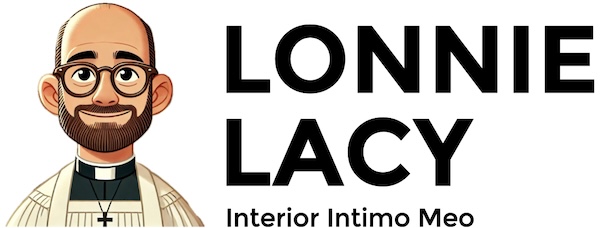St. John’s Episcopal Church
Tallahassee, FL
Genesis 15:1-12,17-18
Some of God’s greatest promises
were made in the dark.
Not just figuratively—literally.
Take Abram.
Old, tired, childless,
standing in the wilderness, talking to God.
God tells him to count the stars,
to trust a promise of descendants
too numerous to count.
But here’s the thing:
It’s still daylight.
He can’t see a single star.
Just empty sky.
Just the ache of waiting.
Then the darkness falls—thick, dreadful.
Abram is terrified,
wondering if he’s made a mistake.
And that’s when God shows up.
Not with comfort,
but with fire, smoke, and a blood oath.
A covenant—
not just to bless Abram,
but to do it unconditionally,
even if it costs him everything.
And Abram’s role?
Not to understand it.
Not to prove himself worthy.
Simply to trust—
a promise made in the dark.
And that’s where it gets real.
Because we don’t trust promises made in the dark.
We want guarantees—
clarity, fine print, proof in daylight.
But God doesn’t promise clarity.
God promises presence.
And that changes Lent.
Lent isn’t a spiritual checklist.
It’s a choice:
Will we trust the promises God has made—
the ones spoken when the way was unclear—
or will we hedge our bets?
Because let’s be honest:
We hedge our bets.
We say we trust God,
but we trust our bank accounts more.
We say we believe,
but we wait for proof before we act.
We say we have faith,
but it’s a daylight faith—
bright,
reasonable,
safe.
But the faith God asks for is different.
It steps forward in the dark—
not because the way is clear,
but because the One leading is trustworthy.
So here’s the question Lent asks:
What promise has God spoken to you in the dark?
What calling, what hope, what assurance—
given when you couldn’t see
how it could possibly come true?
And what would it look like to step forward
as if it already is?
Because here’s the thing about God’s promises:
They demand a response.
Not when the sun rises,
not when everything makes sense,
but in the darkness . . .
when all you have is God’s word.
Faith isn’t passive.
It moves.
It acts.
It steps forward as if the promise holds . . .
even when the stars are hidden.
So maybe this Lent
isn’t about giving things up.
Maybe it’s about giving up our daylight faith—
the kind that only trusts when it’s easy.
Maybe it’s about naming
the prayers we’ve stopped praying,
the risks we’ve stopped taking,
the hope we’ve stopped hoping—
because the darkness lasted too long.
So what would it look like
to live like the promise is true?
To pray for that wayward child—again.
To reach out to that estranged friend—again.
To serve, to give, to forgive—again.
Not because you see the outcome,
but because you trust the one who made the promise.
Abram’s faith wasn’t perfect.
He doubted.
He questioned.
But he stayed—
terrified, exhausted, in the dark—
because he believed God’s word would hold
even when he couldn’t.
So what if the most faithful thing you could do this Lent
is to stay,
to wait,
to hold on to the promise you haven’t yet seen?
To fast—not just from food
but from cynicism.
To pray—not just for answers
but for courage to keep asking.
To repent—not just of sins
but of the ways you’ve stopped believing
that God’s promises still hold.
Because here’s the grace for us today:
The darkness does not nullify the promise.
The silence does not mean God has left.
The empty sky does not mean the stars aren’t there.
The stars will come out.
The sun will rise.
The promise will hold.
So this Lent, step into the dark.
Pray the prayers you stopped praying.
Dream the dreams you stopped dreaming.
Trust the promises made in the dark . . .
not because you can see the stars yet,
but because you know who made them.
Amen.
